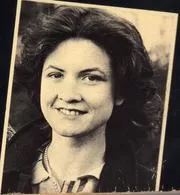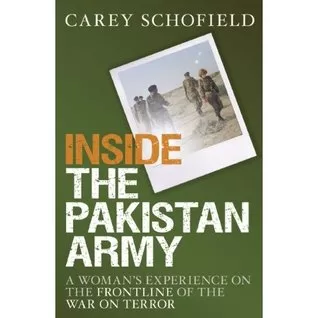Carey Schofield’s book on Pakistan army is another addition to the work done on Pakistan army. Carey was given unprecedented access by then Chief of Army Staff (COAS) and President General Pervez Mussharraf. She made several trips to Pakistan over five years time period and was given access to several senior generals and visited many formations; a privilege not granted to any Pakistani or foreign writer.
Carey has tried to put a complex story of Pakistan and Pakistan army in two hundred and thirty two pages which is a very difficult task. In chapter three, she starts the story from the time of Prophet Muhammad in seventh century going through various dynasties of the subcontinent, linking it with British Empire and then via Afghanistan all the way down to Baitullah Mahsud of the tribal badlands fame. These events spread over centuries and wide geographic areas are not related to the story of Pakistan army.
Carey is intelligent enough to pick up some of the nuances of inner dynamics of senior officer corps as well as civilian elite. However, her sweeping comments about criticism of army as pastime of ‘chattering classes’ is not correct. In general, army still retains respect and even admiration from general public; however a wide spectrum of the society wants army to stay in its own lane. Large segments of Pakistani society as well as many non-Pakistani well wishers of Pakistan are fully cognizant of the enormous sacrifices made by the soldiers and officers of Pakistan army. Fresh graves continually added to the army graveyard in Rawalpindi are a constant reminder of the sacrifices of Pakistan army. The casualties suffered by senior brass of Pakistan army are unprecedented for any army in recent times. During my recent visit to army graveyard, it was sad to see four graves of senior officer’s right next to each other. Major General Amir Faisal Alvi and Brigadier Moinuddin Ahmad; both assassinated in Islamabad are buried next to each other and immediately below them are buried Lieutenant General Mushtaq Ahmad (assassinated by a suicide bomber in Rawalpindi) and Brigadier Anwarl ul Haq Ramday (killed during attack on army General Head Quarters). In addition to death, countless soldiers have been disabled by the current conflict. Criticism of senior brass is in the context of some seriously flawed decisions regarding national security policy as well as encroachment on areas not related to military affairs.
Carey links some of the preparations made by senior officers in 1999 prior to the coup with potential threat of breakdown of law and order. Evidence does not support this assertion and it is quite clear now that these preparations were made to counter any move by then Prime Minister Nawaz Sharif during his confrontation with General Mussharraf. The cast in the play, their relationship with Mussharraf and subsequent meteoric rise of almost all of these officers makes it quite clear that by the middle of 1999, army was securing all its bases against Sharif. Then Chief of General Staff (CGS) Lieutenant General Muhammad Aziz Khan summoned a meeting with presumed threat of possibility of attempt of overrunning Prime Minister and President House. Those in attendance included Director General Military Operations (DGMO) Major General Shahid Aziz, Director Military Operations Brigadier Haroon Aslam, Special Services Group (SSG) Commander Brigadier Amir Faisal Alvi, 111 Brigade commander Brigadier Salahuddin Satti, SSG Zarrar Company commander Major Haroon ul Islam and Commanding Officer (CO) of the battalion guarding Prime Minister House Lieutenant Colonel Shahid Ali. It turned out later that the group actually overran the Prime Minister and President House although they were pretending to prevent such an outcome by someone else.
Muhammad Aziz was later given the fourth star and served as Chairman Joint Chiefs of Staff Committee (CJCSC), Shahid Aziz and Satti were promoted to Lieutenant General rank and both served as CGS and Corps Commanders, Haroon Aslam was promoted Major General and appointed General Officer Commanding (GOC) SSG (he is now Lieutenant General and Corps Commander), Faisal promoted to Major General rank (although he later fell out with Mussharraf and unceremoniously removed) and Haroon ul Islam became Lieutenant Colonel and died during Lal Masjid operation. Lieutenant Colonel Shahid did not go further in the army but for different reasons. On the day of the coup, Shahid had restrained newly appointed COAS Lieutenant General Khwaja Ziauddin and his guard and Ziauddin’s escort had pulled guns at each other coming close to a shootout. He also later confronted Lieutenant General Salim Haider and prevented him from entering the Prime Minister House. Shahid followed the orders of his superiors but no army Chief can be comfortable promoting an officer after such encounters. In contrast, Shahid’s counterpart commanding the battalion at President House Lieutenant Colonel Javed Sultan was given choice postings and promoted to Major General rank (he died in a helicopter crash in 2008).

Carey has highlighted some of the differences among senior brass regarding ongoing operations. No army is monolithic and Pakistan army is no exception. In war, there are differences between various branches of the armed forces as well as senior officers. There was and probably still a clear divide between intelligence agencies and fighting formations as far as conduct of operations is concerned. It is also very difficult for an outsider to navigate the minefield of personal and professional rivalries and jealousies among the senior officers.
Carey has given a detailed account of the controversy surrounding the unceremonious removal and death of the former GOC of SSG Major General Amir Faisal Alvi. Carey knew him well and he shared many details with her therefore the account is quite credible. Carey was criticized by many army officers when she published Alvi’s letter after his death. Many charged that the letter was fabrication to discredit Pakistan army. However, there is no reason to believe that the letter was a fabrication. It was Alvi’s own view in the context of his deep anger towards some senior officers. Carey provides her take on the issue and gives the readers all sides of the story and they can reach their own conclusions.
Alvi was forcibly retired and he suspected that then Director General Military Intelligence (DGMI) Major General Mian Nadeem Ijaz and then CGS Lieutenant General Tariq Majeed conspired to remove him. It is quite clear now that Alvi was removed for passing some remarks against General Mussharraf that were recorded by MI and played to Mussharraf. Alvi’s affair with a woman got entangled with his removal as remarks were passed during telephone conversation with this lady. Alvi was furious as many other officers also had affairs and he didn’t hesitate to announce this to many. However, later Alvi tried to put disagreement regarding policy matters (peace deals with militants) as cause of his dismissal and accused some officers including Tariq Majeed in this regard. This gives the impression that somehow these officers were not committed to the fight against militants or worse they were running their own show; both assumptions not correct. Negotiations and payouts to militants were part of the general policy that proved to be disastrous as later events showed. However, officers (formation commanders and intelligence operatives) involved in these efforts were following a policy decision and not acting independently. Tariq’s own son-in-law has been abducted by the militants and in their custody for the last eighteen months. They have demanded release of some high value detainees and huge ransom and it is to Tariq’s credit that he has held his ground.
The most valuable part of the book is summary of some of the military operations in Federally Administered Tribal Areas (FATA) although author could have provided more details in view of her access to several senior officers involved in the operations. There are few minor typo errors in the book. On page 100, Hizb-ul-Tahrir; a London based Islamist group championing Caliphate is named incorrectly Hezb-e-Islaam and on page 137, tribal police khassadars is written Hasildars.
This book gives impression of a favorable narrative about Pakistan army and it is not surprising. Pakistan army was author’s host and it is very difficult to criticize one’s host. Such relationship invariably affects the perspectives and if one is using titles such as ‘unimpeachable’, ‘glamorous’, ‘outgoing’, ‘scrupulous’, ‘clever and kind’, ‘darkly brilliant’, ‘neat’, ‘honorable’, ‘guileless’, ‘principled’, ‘gutsy’and ‘gentle and thoughtful’ for senior officers, it is very hard to criticize the same individuals. Despite its shortcomings, book still has its value for those interested in Pakistan army.





